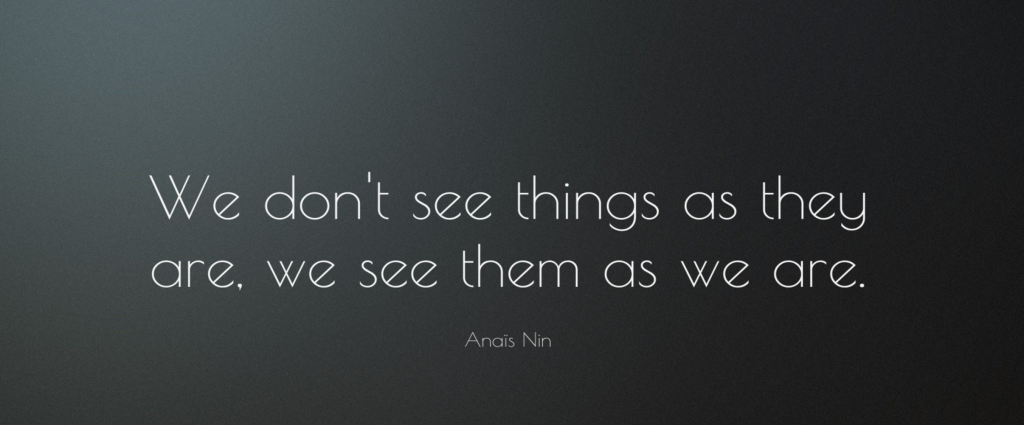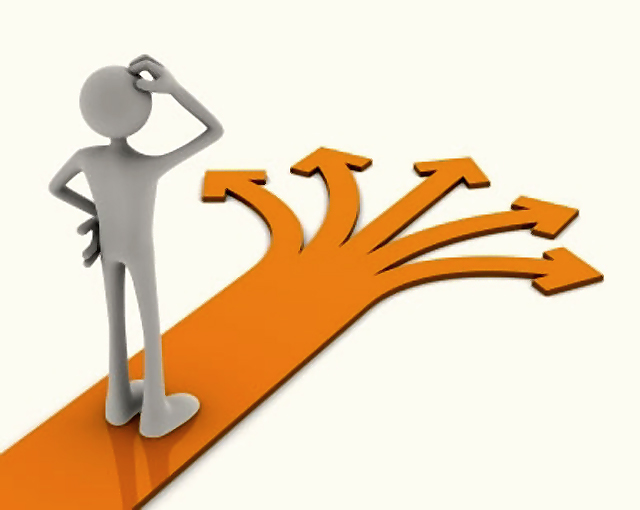One of my most vivid memories from my childhood is when my grandmother mistook me for my father. I first thought she had gone crazy, but I was relieved when it was diagnosed as cataract in her eyes. Within a few days and after a small surgery, I was back to being her grandson. That was an easy fix — I thought at that time.
I had no idea that many years later, I was to discover a kind of cataract — in my vision and listening. The cataract which I am talking about are our listening filters. As I shared briefly in my article about Listening, these filters helps each one of us create our own perceived reality which helps us in making every decision — big or small — of our lives. However, unless we know the various listening filters at play, we don’t see our reality as a perception but as the absolute truth.
Whenever we see or hear something, we select what to pay attention and what to ignore, often subconsciously, based on a certain set of filters. A simple example could be someone speaking our name. Even if we are in a crowded room, we will instantaneously pay attention if someone utters our name, even if they are behind or far away from us. Our filters make us give more attention to our name than any other word.
Similarly, other listening filters make us pay more attention to certain things and ignore others. They can make one of us cry and another laugh on hearing the same story. They allow us to make sense of the situation in front of us, which creates the foundation on which we base our decisions.
What are these Listening Filters?
1. Parents
Our parents are our first contact with humanity. As we grow up, our parents influence us the most. As we try to understand the world around us, our parents tell us stories to make it easier for us to navigate it. Everything that we consider as our most basic self – our religion, language, values, our political affiliations — are shaped by our parents more than anyone else.
Subconsciously we learn to listen to the outside world through them. Depending on what our parents think, and how they act, we learn to make our own choices, and judge other’s choices. We either end up see the world as they do, or rebelling against them and view the world contrary to how they see it.
2. Values and Beliefs
We filter everything we see and listen through our values (how we define right & wrong), and political, religious and other strong beliefs. For example – If a person has suffered racial discrimination in the past, he is likely to filter all future interactions with suspicion and caution.
If we hear what is in tune with our values and beliefs, we feel relaxed, joyful, and get an ego boost which can easily be seen in our body language. When we hear or see something contrary to our beliefs, we are surprised and might even feel pain and shock. We feel our muscles tightening, which can develop into stress, frustration and anger. Again, this is visible in our body language.
3. Culture – Language, Society, Religion
We behave in the world according to the religion we follow (or not), the languages we speak and are spoken around us, and the norms of the society we live in. Whether we are direct or vague in our communication, whether we are disciplined in our daily dealings or not, whether it is polite to accept a gift or not, and other subtle things in our daily life — are shaped by the culture of the land we live in.
4. Intentions, Expectations and Mood
We enter every conversation with an expectation of the outcome. For example – my expectations are very different when I talk to my colleague at work compared to when I run into him over the weekend. Similarly, my expectations differ when my wife calls me up at our usual time and when she calls up unexpectedly during the middle of the day. What we listen in these different circumstances is shaped by what we expect to happen.
Our listening is also shaped (or filtered) by our mood. At the end of a long day when we are tired, if we don’t get our expected response in a meeting, we might easily get frustrated and angry. But if we get the same response at the beginning of a day when we are fresh and energetic, we might respond in a totally different manner. The difference in both these cases is our mood impacting our listening.
5. Personal Prejudices
We all have certain personal prejudices, which can be racial, economical or something even more subtle – like the way one dresses. We listen and treat people differently based on these prejudices, most often on a subconscious level. An example is considering one colleague more ambitious than another based on how they are dressed. Another example is how we listen when we are approached by a homeless person on a street. Do we trust them when they approach us for money, or think about whether they are just going to use the money to get drunk?
We all have such personal prejudices formed over the years which live in our subconscious and give us a filtered view of the world around us. We are likely to ignore anything that opposes these prejudices, and very likely to agree and bond with anyone who shares the same prejudice as us. For instance, if we have a personal dislike for a person, we are likely to be dismissive about his ideas. On the contrary, when we interact with people we admire, we might behave over-optimistically in situations which warrant more caution.
Does everyone have the same filters?
Absolutely not. Just like our fingerprints, each one of us has unique listening filters. Based on our past, we all filter how we experience the present and make meaning of what we see and hear. Furthermore, our listening filters are changing (or evolving) daily based on new people we meet, successes and failures we have, and prejudices we form.
Our listening filters give each one of us a unique view of the world around us. These filters are almost like glasses through which we view the world. We put on our black glasses, and then complain the world around us is black. Not only that, we argue and fight with others wearing red glasses that the world is black and not red. Sounds silly, isn’t it! Yet we all do it.
What can we do about them?
Every decision we make, whether it is trivial or a life changing one, depends on how we assess the situation. Our listening filters help us create this assessment, which in turn limits the options in front of us. If two people act differently in the same situation, the difference is in their assessment of it. Reality is the shaky foundation on which we all rest our decisions.
As you read this article, and understand it through your own filters, don’t be led to believe that there is something wrong with having them. Instead, they are very useful in giving us a set of options in each situation which help us navigate through life. However, we are normally blind to the fact that these filters give us our perspective of life in each moment. If more aware, we are likely to understand how others see things differently.
Knowing that others may see the same situation differently can help us stay humble in challenging times. Being aware that our listening filters limit our available options can give us a big picture view and bring a smile on our face in stressful situations. In doing so, we don’t have to throw away our coloured glasses through which we view the world, we just have to be aware of them. And perhaps, try different ones for a while.
Making an attempt to sincerely view a situation from the other person’s point of view is what Real Listening is all about. If we can do so, we will make our conversations a bit more constructive, our days a bit more fun, and our relationships a bit more meaningful.



